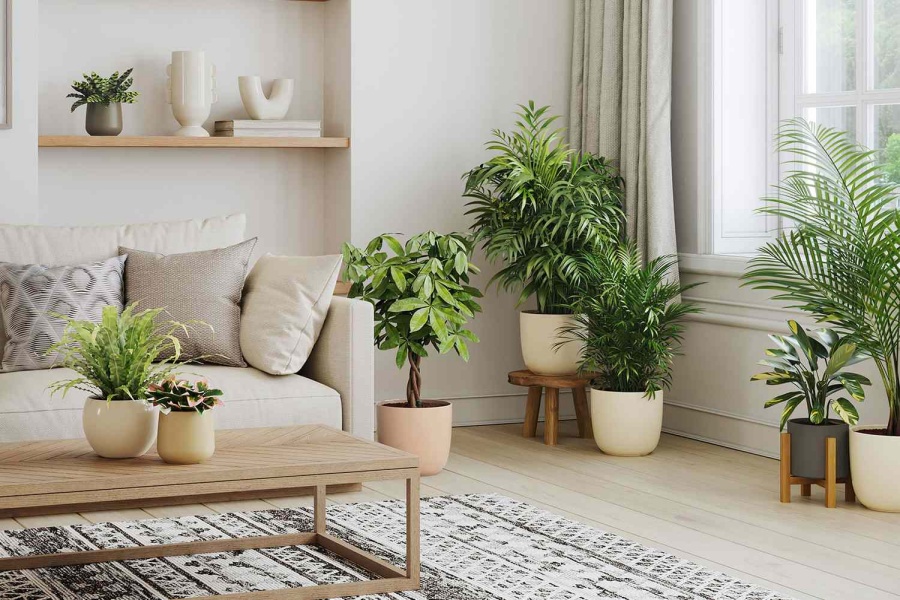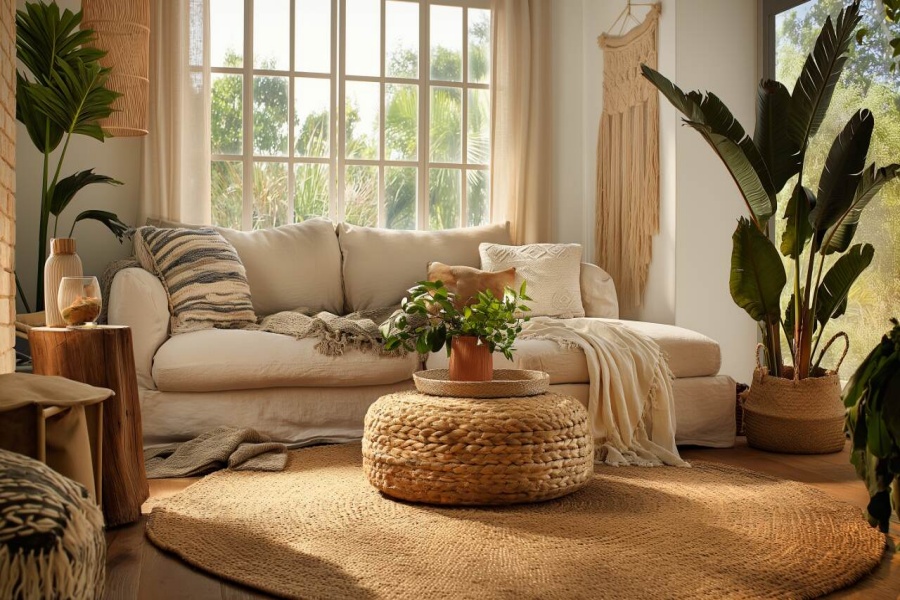
Indoor plants are known for their air-purifying properties. They absorb the carbon dioxide we exhale and release oxygen, improving the air quality in our homes. Some plants, like the snake plant and the spider plant, are particularly effective at removing toxins from the air.
Indoor plants can also help regulate humidity in your home. They release moisture into the air through a process called transpiration, which can help keep your home’s humidity levels in check. This can be particularly beneficial in dry climates or during winter months when indoor air tends to be dry.
Having indoor plants can also have a positive impact on your mental well-being. Being around plants and nature has been shown to reduce stress, improve mood, and increase productivity. The act of caring for plants can also be therapeutic and rewarding.

When it comes to choosing indoor plants, consider factors like the amount of light your home gets, the climate you live in, and how much care you’re willing to give. For example, succulents and cacti are great for sunny spots and require little water, while ferns and ivy do well in shade and need more moisture.
Caring for indoor plants involves more than just watering. It’s also important to provide the right amount of light, keep them in the right temperature, and feed them with the right nutrients. Remember to rotate your plants occasionally to ensure they get even light exposure, and clean their leaves to keep them free from dust.
Having indoor plants is about more than just aesthetics. It’s about creating a healthier, happier living space. Whether you’re a seasoned plant parent or just starting your plant journey, consider adding some greenery to your home. It can make a world of difference.








